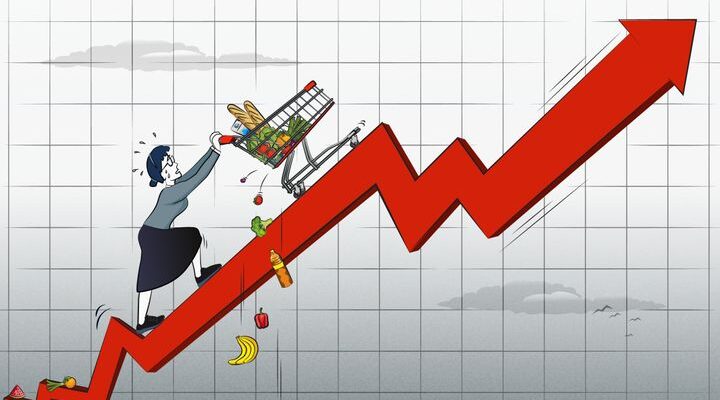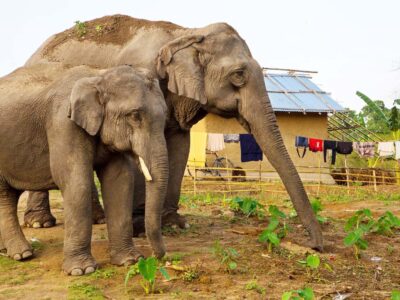Zambia’s annual inflation rate has surged to 15.4 percent in July 2024 due to price movements of food items.
This is as the country recorded K1.4 billion trade surplus.
Read more: Zambia’s inflation rate rises to 14.7% in May, trade surplus hits K2.4 billion
Giving an overview of the country’s statistics, Zambia Statistical Agency (ZamStats) Statistician General, Goodson Sinyenga, stated that the annual inflation for July, 2024 increased to 15.4 percent from 15.2 percent recorded in July, 2024.
This meant that on average, prices of goods and services increased by 15.4 percent between July 2023 and July, 2024.
Addressing journalists in Lusaka on Thursday, Sinyenga said that annual food inflation for July, 2024 was recorded at 17.4 percent compared to 16.8 percent the previous month.
This, he said, meant on average prices of food items increased by 17.4 percent between July, 2023 and July, 2024.
Sinyenga noted that the outturn was mainly attributed to increase in price movements of bread and cereals, (breakfast & roller mealie meal, rice, bun, fritters, cassava meal) fish, vegetables, fruits, eggs, cooking oil and sugar.
He said annual non-food inflation for July 2024 was recorded at 12.6 percent compared to 13.0 percent.
This development was mainly attributed to decrease in prices of non-food items such as Major household appliances, pharmaceutical products, fuel and passenger transport by air
Sinyenga pointed out that of the overall 15.4 percent annual inflation, the food and non-alcoholic beverage group contributed 10.1 percentage points, while non-food group accounted for 5.3 percentage points.
“Of the 5.3 percentage points, transport contributed the highest at 1.6 percentage points followed by housing, water, electricity, gas and other fuels at 1.3 percentage points, furnishings, household equipment and routine household maintenance, and clothing and footwear at 0.8 and 0.6 percentage points, respectively,” he said.
Sinyenga added that the rest of the non-food group accounted for the remaining 1.0 percentage points.
He indicated that Lusaka province contributed the highest at 3.8 percentage points to the overall annual inflation of 15.4 percent in July, 2024.
Copperbelt, Sinyenga said, contributed 3.3 percentage points.
He said Central and Southern provinces contributed 2.1 and 1.9 percentage points respectively, while North-western province had the lowest contribution of 0.5 percentage points.
On trade, Sinyenga reported that trade for the period January to June 2024 was K262.4 billion, while that of 2023 for the same period was K200.5 billion, representing a 30.9 percent increase in the cumulative total trade earnings.
“The total value of exports via all modes of transport for the month of January to June 2024 was K135.1 billion. Road transport accounted for highest value at K125.5 billion representing 92.9 percent,” he said.
The total value of imports via all modes of transport for the month of January to June was K127.3 billion.
Sinyenga said road transport was the highest at K70.6 billion representing 55.5 percent followed by air transport at K7.7 billion.
He added that rail transport was third at K0.3 billion accounting for 0.2 percent of the total import bill.
Other modes of transport, Sinyenga noted accounted for K48.8 billion.
In terms of volumes, he said a total of 3.7 million tonnes of imports were recorded for the month of January to June 2024, of which road transport accounted for 2.0 million tonnes, representing the highest share at 52.9 percent.
Sinyenga said railway transport accounted for 47.8 thousand tonnes, representing a share of 1.3 percent in the period under review.
He added that Zambia recorded a trade surplus of K1.4 billion in June, 2024 compared to a surplus of K3.0 billion in May 2024.
“Exports mainly comprising domestically produced goods, decreased by 9.1 percent to K24.7 billion in June 2024 from K27.1 billion in May 2024,” Sinyenga noted.
This was mainly on account of 11.4 and 34.2 percent decreases in export earnings from Intermediate goods and Capital goods, respectively.
Imports decreased by 3.5 percent to K23.3 billion in June 2024 from K24.2 billion in May 2024.
Sinyenga said this was mainly as a result of 14.7 and 5.3 percent decrease in import bills of intermediate goods and capital goods, respectively.
WARNING! All rights reserved. This material, and other digital content on this website, may not be reproduced, published, broadcast, rewritten or redistributed in whole or in part without prior express permission from ZAMBIA MONITOR.












Comments